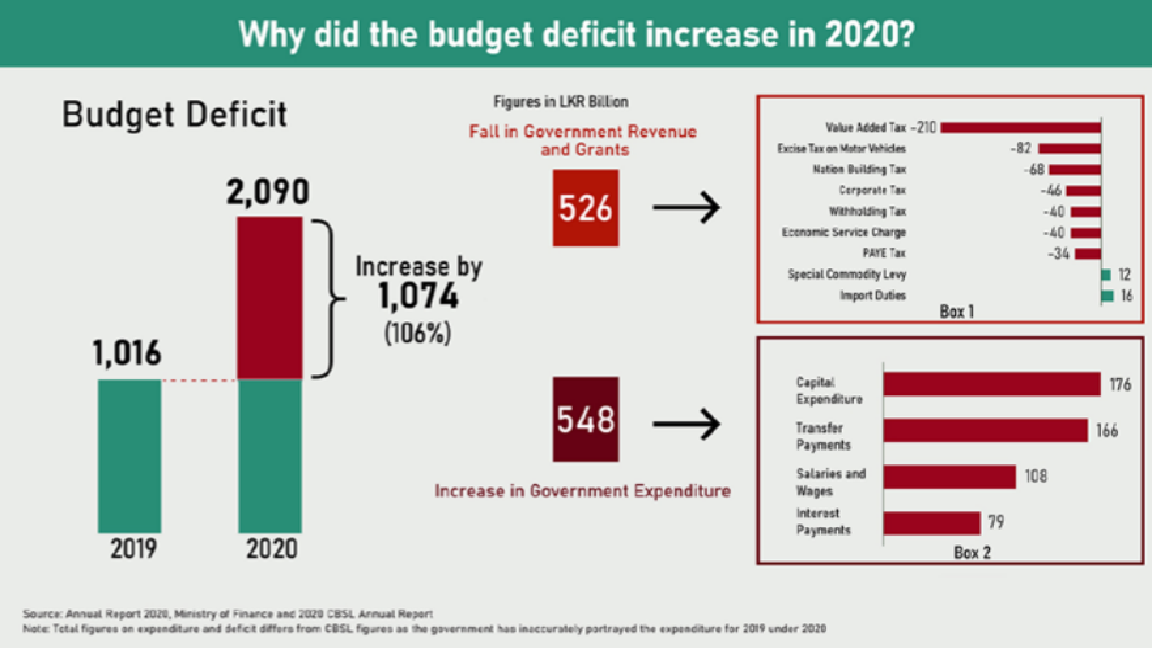Published on The Morning
- Advises to expand tax base instead of increasing tax rate
According to former Economic Advisor to the Minister of Finance and Verité Research Director – Research Deshal de Mel, while revenue enhancement measures will be a critical element in the upcoming 2022 Budget as the Sri Lankan economy is still recovering from pandemic-related stress, any such measures, particularly through taxation, must be carefully calibrated to ensure that it doesn’t create any disincentives against the new investment, consumption, and the production process.
Explaining further, de Mel provided that the best way to enhance revenue in the short term would be to focus on measures to expand the tax base rather than increasing rates.
He proposed that measures be introduced to reduce the value added tax (VAT) threshold – which was increased to Rs. 300 million per annum from Rs. 12 million per annum in early 2020 – to around Rs. 150 million per annum. Additionally, in the case of personal income tax, he proposed the reduction of the threshold, which was increased to Rs. 3 million per annum in early 2020, to a lower level.
“Similarly, measures to improve tax administration could include measures like the introduction of withholding tax on interest income. Because right now, the interest income has to be self-declared by the individual, whereas previously, the tax on interest income will be collected directly by the cash institution and remitted to the Inland Revenue Department (IRD). So, in terms of the tax administration, the IRD has to only deal with the banks and financial institutions, whereas now, it has to deal with the entire base of the depositing community in the country,” added de Mel.
He further held that another measure that can be introduced in the short term is the indexation of alcohol and tobacco taxation. “Indexation means that the tax rate is increased in line with the growth rate of nominal GDP (gross domestic product). Therefore, the tax incidence will increase in line with affordability and thus ensure a steady stream of tax enhancements from alcohol and tobacco products regularly,” explained de Mel.
According to a study conducted by Verité Research, by failing to implement indexation of tobacco taxes, the opportunity lost in terms of tax revenue within a single year was around Rs. 20 billion.
He further provided that by 2023 or 2024, once the economy has recovered sufficiently, the value-added tax (VAT) rates can be increased from their current level of 8%, which is quite low when compared to regional peer comparisons and Sri Lanka’s historical standards.
Additionally, he held that while the corporate income tax in Sri Lanka at 24% is in line with the median range of our peer economies, the issue is with the significant level of divergences from the regular rate allowed by the concessionary rates offered.
Accordingly, de Mel proposed: “We can shift to a system where we revert to a three-tier corporate income tax rate; 24% as the regular rate, 14% as the concessionary rate, and 40% as the top rate, applicable to sectors such as alcohol, tobacco, and gaming.”
Moreover, he suggested the reintroduction of pay as you earn (PAYE) tax, which will be a useful measure in terms of tax administration, freeing the IRD from having to focus on the entire employee population.
These comments were made by de Mel at the press briefing conducted by Verité Research on the findings published in the online platform “Budget Promises: Beyond Parliament” regarding the Government’s fulfilment of budget promises in 2020.
“Budget Promises: Beyond Parliament” is a pioneering online platform launched in 2017 that tracks the Government’s performance in delivering on its budget promises.
In 2020, due to the absence of a budget speech, the platform assessed 26 regulatory and expenditure cabinet decisions taken during January-June 2020 and eight proposals from the 2019 budget speech that were not fulfilled during 2019 due to the Easter Sunday attacks.
Of the 34 proposals considered by the platform for 2020, it was able to obtain confirmation regarding at least the partial implementation of only 15 proposals.
